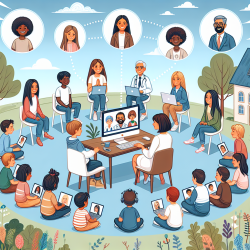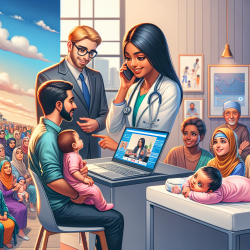Introduction
In the realm of global governance, the G20, BRICS, and SCO have demonstrated a remarkable journey from potential competition to contagious, convergent, cumulative cooperation. These plurilateral summit institutions (PSIs) have significantly shaped twenty-first-century global governance by addressing economic, social, and political-security issues in a mutually reinforcing manner. As speech-language pathologists (SLPs) dedicated to improving outcomes for children, we can draw valuable insights from their cooperative strategies to enhance our practice.
Understanding the Research
The research article "Contagious convergent cumulative cooperation: the dynamic development of the G20, BRICS, and SCO" explores how these institutions have evolved from distinct visions and missions to a cooperative force addressing global challenges. By 2021, these PSIs had extended outreach to new members, expanded institutions, and embraced a wide range of issues, including economic finance, social sustainability, and political-security concerns.
Lessons for Speech-Language Pathologists
SLPs can implement the cooperative strategies observed in these global institutions to enhance their practice. Here are some key takeaways:
- Collaborative Networks: Just as the G20, BRICS, and SCO have expanded their networks, SLPs can benefit from building collaborative relationships with educators, healthcare providers, and families. This network can facilitate comprehensive care and support for children with speech and language challenges.
- Data-Driven Decisions: The success of these institutions is rooted in data-driven strategies. SLPs should prioritize evidence-based practices, utilizing data to tailor interventions that meet the unique needs of each child.
- Adaptability and Flexibility: The ability to adapt and respond to emerging challenges has been crucial for these PSIs. SLPs should remain flexible in their approaches, ready to modify interventions based on ongoing assessments and feedback.
- Interdisciplinary Engagement: Embracing interdisciplinary collaboration, as seen in the global institutions' engagement with various sectors, can enrich SLP practice. Engaging with professionals from different fields can provide new perspectives and innovative solutions.
Encouraging Further Research
SLPs are encouraged to delve deeper into the strategies employed by these global institutions. Understanding the dynamics of cooperation and convergence can inspire new approaches to therapy and advocacy. By exploring how these institutions address complex global issues, SLPs can gain insights into managing diverse and challenging cases.
Conclusion
The journey of the G20, BRICS, and SCO from competition to cooperation offers valuable lessons for SLPs committed to creating great outcomes for children. By fostering collaborative networks, making data-driven decisions, and embracing flexibility, SLPs can enhance their practice and better support the children they serve.
To read the original research paper, please follow this link: Contagious convergent cumulative cooperation: the dynamic development of the G20, BRICS and SCO.










